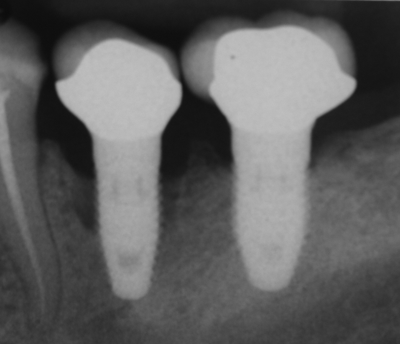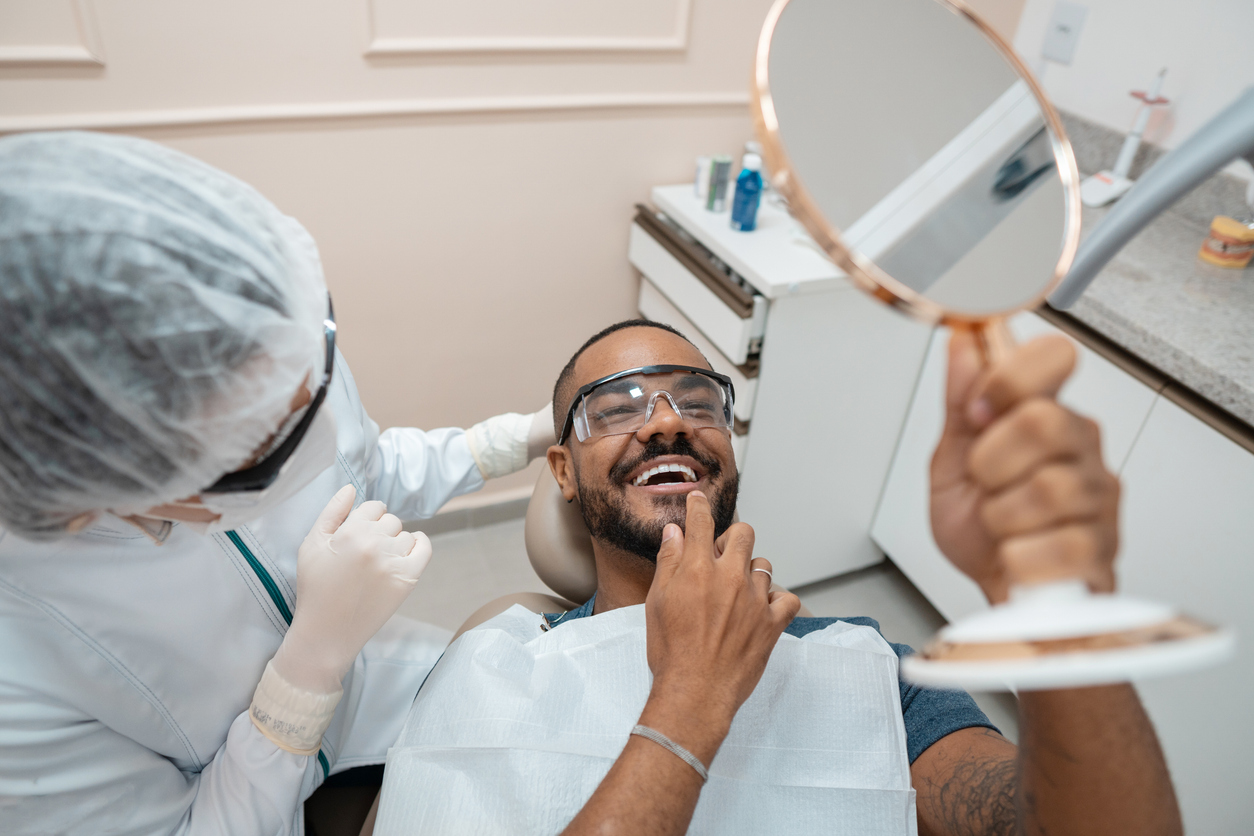
If you’ve gotten dental implants in Phoenix, or have been considering them, please educate yourself about “Peri-Implantitis,” which is important to know about as a potential health risk if you do not care for your dental implants properly. It is very treatable and easy to avoid, but if not cared for quickly it can become a serious health problem.
Peri-Implantitis Explained
This condition is characterized by inflammation affecting gums, bones, and other tissues surrounding dental implants. It is very similar to gum disease. Severity can range from minor inflammation of the gums to drastic deterioration of the gums and bone in the jaw. If it does get that severe, can lead to a patient losing their dental implants.

What Are The Symptoms of Peri-Implantitis?
The cause of peri-implantitis is the gradual accumulation of bacteria and food particles around the dental implant. Because of this, peri-implantitis usually grows without being noticed in the earliest stages. In later stages, symptoms range from minor to more severe These include:
- Redness, inflammation, and bleeding of the surrounding gum tissue.
- Deepening of the gum pockets around the implant.
- Exposure or visibility of the implant threads.
- Loosening of the implant.
- Pus discharging from the tissues around the implant.
- Swollen lymph nodes around the neck.
What Causes Peri-implantitis?
The causes of this condition are the same as periodontitis, or gum disease: the buildup of plaque and tartar that are full of harmful bacteria and pathogens. Several habits can cause this, and they can all be fixed:
- Brushing your teeth too infrequently. Ask your dentist how often you should brush your teeth. Most dentists suggest brushing 2-3 times per day.
- Using an old, worn-out toothbrush. If the bristles of your toothbrush are bent, frayed, or discolored, then it cannot effectively clean your mouth. It’s time for a replacement!
- Improper tooth brushing technique. Don’t make the mistake of only cleaning the tops of your teeth, or only brushing where your teeth are visible. Food often gets caught in hard-to-see places of your mouth, including the back corners and the gum line. Tell your dentist you want to make sure your brushing your teeth properly, and ask him or her for some tips.
- Not flossing. Failure to floss leaves about one-third of your mouth’s plaque where it was. For some people, this means weeks, months, or years with the same bacteria eating away at their teeth, gums, and dental implants.
If you feel you might have peri-implantitis, give us a call at Arizona Periodontal Group and schedule an appointment with Dr. Trujillo. We want you to have a healthy mouth, and we know how to help you get it!







